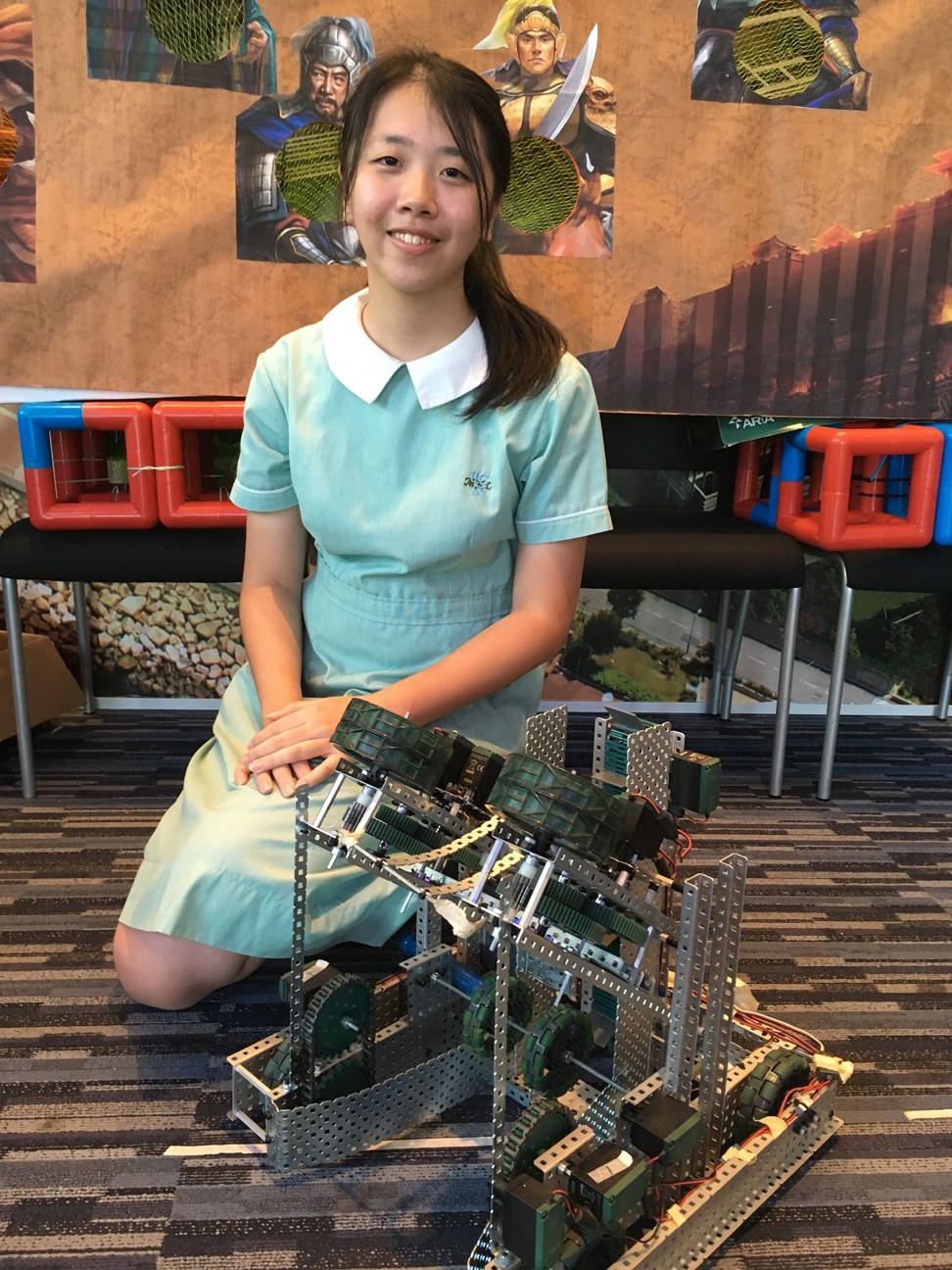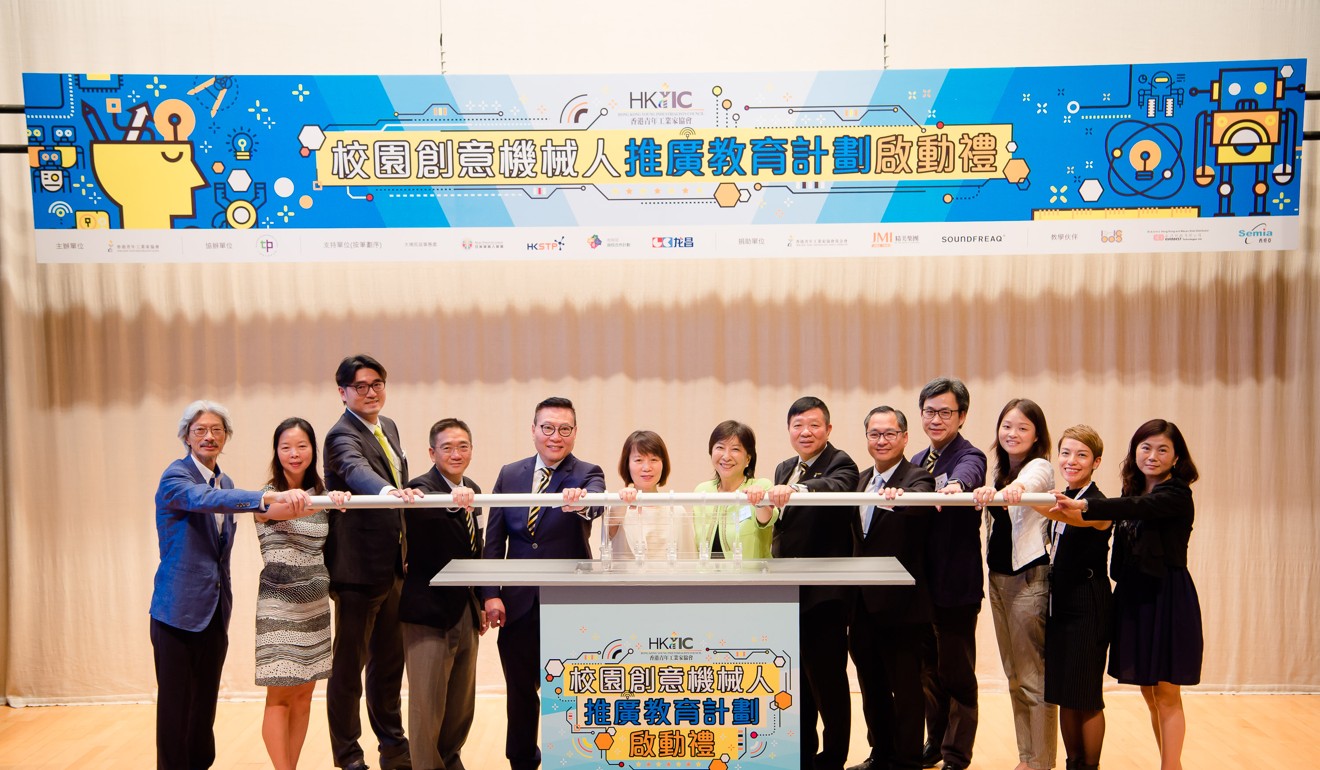
Robotics competition instils interest in STEM subjects in young people
As a rapidly changing economy makes maths and technology education ever more necessary, new ways are being found to make learning fun, relevant and useful
The development of the latest exciting digital apps and games. The creation of awesome buildings, bridges and other feats of construction in the man-made environment around us. The discovery of new treatments and cures for the diseases that shorten so many lives. The invention of ingenious methods to help preserve the wonder and beauty of the natural world. All are made possible by, and have their foundations in, the STEM (science, technology, engineering, mathematics) subjects.
And, as the economy of the future is sure to look very different to the one we live in today, the value of a high-quality STEM education can have an even more immediate impact on individual lives. It is already clear many traditional jobs and careers are set to disappear, while new, totally different ones will emerge. These changes will be based, largely, on developments in digital technology, engineering and the other fields of science associated with the STEM subjects.
To prepare for this future, schools and other interested organisations are trying new ways to inspire pupils and make studying these subjects as fun and as relevant as possible. One organisation involved is Hong Kong Science and Technology Parks (HKSTP), which, as part of its corporate social responsibility (CSR) strategy, is promoting STEM education among local primary and secondary pupils, via a range of events and activities.
Recently, the HKSTP has lent its support to a robotics education programme for the Tai Po Secondary Schools Network. The planning for this programme, which was facilitated by the Tai Po District Office, has been led by the Hong Kong Young Industrialists Council. Each of the 20 secondary schools in the Tai Po District will receive HK$50,000 to purchase the kind of equipment that can enhance their teaching of robotics. The programme will last two years, with pupils’ works displayed at the end of each school year.
“During the two years of the programme, HKSTP will provide hardware and software support to the 20 secondary schools which are participating in the programme,” explains Jojo Cheung, the HKSTP’s chief marketing officer. “This will include the use of facilities in our Robo Workshops and Robotics Garage, as well as the provision of project-based learning in robot-making workshops, as an out-of-school curriculum supplement for teachers and pupils.”

Jesse Kok, Form Four, and Amy Kwok, Form Five, are pupils at Ling Liang Church M H Lau Secondary School in Tai Po. The pair has participated in several STEM competitions and events supported by HKSTP, including the robotics programme that began in September. Their school won the overall championship among competing schools.
“I aspire to study engineering at university in the future,” Kwok says. “I think the STEM competition I participated in has enabled me to enhance my technical skills and gain valuable experience in engineering. The STEM activities also let me realise some of my own innovative ideas. This has given me a sense of achievement and accomplishment.”
Engaging in these STEM activities has also given Kwok hands-on experience of engineering and robotics. The way in which this experience supplements the theories she’s learned in school is very important to her. She says, “I wish to contribute to innovation and the technology industry in the future. The STEM activities provided me with many opportunities to learn about programming and engineering from knowledgeable technology industry experts.”
It would seem that everyone benefits if the quality of STEM education in Hong Kong is raised, and the numbers of pupils inspired to focus on these subjects increases. Graduates in these subjects can expect to go on to have exciting and well-paid careers, while wider society will almost certainly come to rely on these tech- and science-savvy individuals to drive the city’s future prosperity.
But already there is a shortage in the job market of individuals with digital, engineering and other science-related skills – and demand is only likely to grow.
“Growing a sustainable talent supply for the innovation and technology sector was a key objective for the (HKSTP) corporation in 2016-17,” notes Cheung. “This was accomplished through promoting employment opportunities and presenting local and overseas internship opportunities to young talent.”

In order to gauge the manpower needs of the innovation and technology sector, the HKSTP keeps track of high-value research and development (R&D) projects being undertaken by its partner companies and “incubatees”. Cheung adds, “By the end of March this year, among the 13,000 people working in Science Park, nearly 8,500 R&D personnel were developing technologies across our five technology clusters.”
At the Career Expo held at Science Park last February, over 100 local and overseas companies were offering around 1,000 job opportunities in the innovation and technology field. These positions were open to fresh university graduates or those with less than 10 years’ working experience. Expo visitors also had the opportunity to find out from HKSTP’s Incubation Programme graduates what it takes to strike out as an entrepreneur. In addition, they had the chance to apply for a place on a “CEO Shadowing Programme”, in which they could observe and learn from C-level executives over the course of three days.
Cheung is proud of the success HKSTP has achieved with its Vibrant Science Academy (VSA) and Science Explorer programmes.
“The programmes are designed to instil an interest in STEM subjects in young people through fun games, workshops and experiments,” she explains. In the latest reporting period, the attendance figure was close to 50,000. Over 98 per cent of the more than 1,400 people surveyed – mainly the parents of children who had joined STEM-themed events under the VSA platform – ranked STEM knowledge as important and were positive about taking STEM subjects in school.
Among a range of other STEM-promoting activities and programmes HKSTP has organised, or taken part in this year is Robofest Hong Kong 2017. “This robot competition for pupils was co-organised with the Robot Institute of Hong Kong and attracted 540 participants,” Cheung says.
She goes on to point out that the corporation also engages directly with partner companies and incubatees – the potential employers of STEM graduates – to provide internship opportunities for university students.
“It has been a win-win arrangement for employers and students, as companies gain fresh thinking from young talent, and identify technology talent at an early stage, while students gain valuable exposure in a real work environment.”
By the end of March this year, 285 internships had been arranged with partner companies and incubatees. Overseas internship opportunities were also explored with universities in the US, Australia and Sweden, while 115 internship places were arranged with 11 mainland companies.
This article appeared in the Young Post CSR supplement as: the appliance of science
